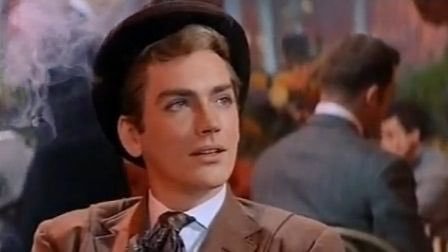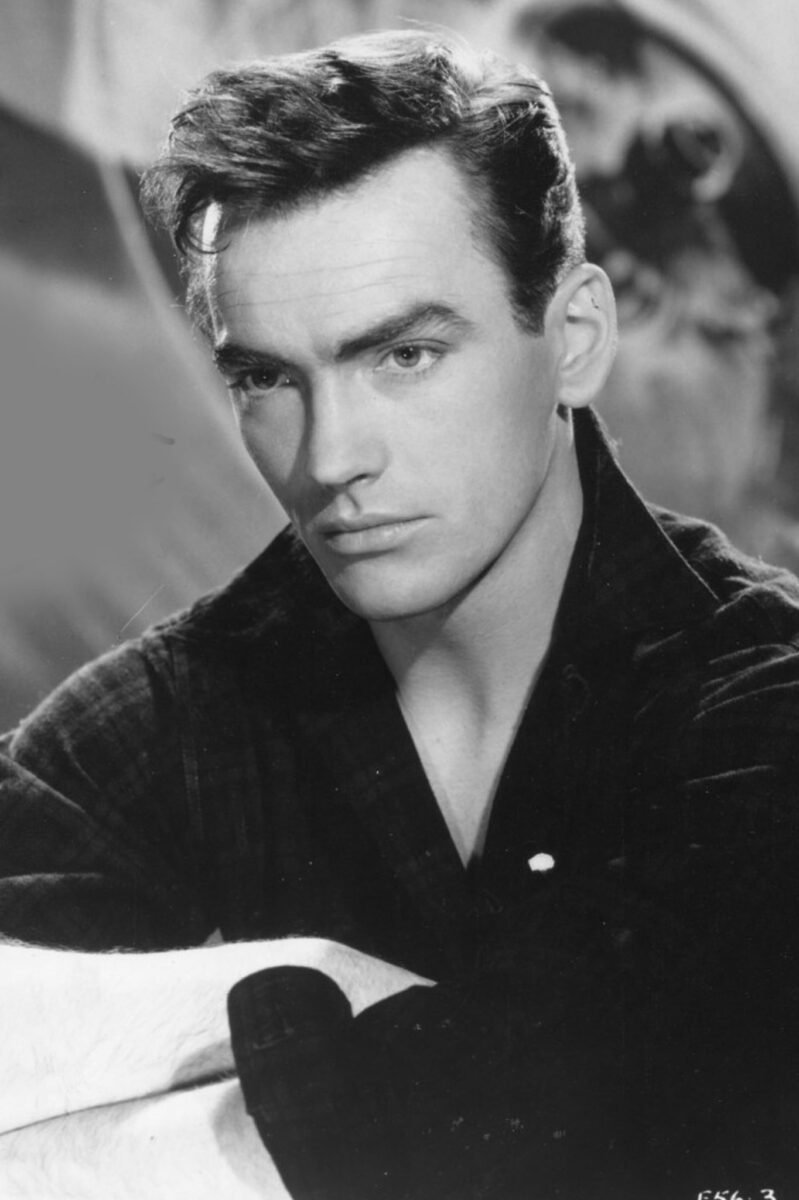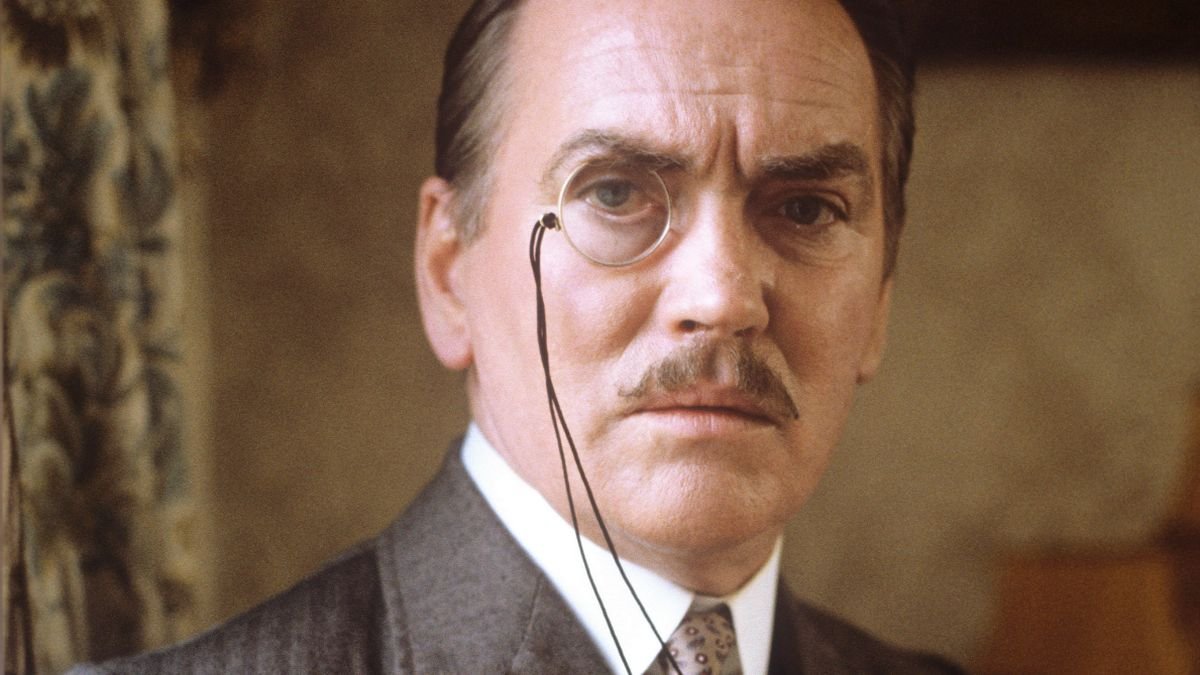The Scottish actor, John Fraser, died this week at the age of 89. To fans of classic Doctor Who, he will be known as the Monitor in Tom Baker’s epic departure story, Logopolis, but this was just a sliver of an impressive career and a life well lived. He was a film star, singer, dancer, playwright, novelist, and, in the words of Mark Gatiss, ‘an outrageous memoirist’.
Fraser was born in Glasgow in 1931 to an impoverished and troubled family. His alcoholic father, John, died early, as did his mother, Christina. This left he and his two older sisters, Chris and Jean, in the care of their aunt. Fraser began to act as a teenager, playing a page to Herodias in a production of Oscar Wilde’s Salome at the Glasgow Park Theatre. But he must have felt shackled to his past when a reviewer wrote that his performance had been ‘undermined by an accent from the worst Glasgow slums’.
Fraser took elocution lessons and found work on the radio soon after. He then did a stint in the army (national service being compulsory anyway) and left an officer. He returned to Glasgow Park Theatre as stage manager and took on small roles. From here, his star soon ascended, aided by his striking good looks. In 1952, he was offered a film contract with the Associated British Picture Corporation, giving him roles in (aptly) The Good Beginning (1953) and Valley of Song (1953). Both films were shot in Italy, a country he would make his home for many years. Soon after, he would play the composer, Inigo Jollifant, in a remake of The Good Companions (1957), singing opposite Janette Scott. They recorded the title song together and this led to a short stint as a pop singer, complete with his own fan cub and appearances on Six-Five Special and other TV shows.

A ‘blistering Bosie.’
The late ’50s and early ’60s were fertile years for both British cinema and Fraser personally. He would take roles in The Wind Cannot Read (1958) with Dirk Bogarde, The Dam Busters (1955), Tunes of Glory (1960), El Cid (1961), and Fury at Smugglers’ Bay (1961). In 1960, he took on possibly his most successful cinematic role, playing ‘Bosie’ (Lord Alfred Douglas) in The Trials of Oscar Wilde. In 1965, he had the good fortune to win a role in Roman Polanski’s English language debut, Repulsion, opposite screen legend Catherine Deneuve. Perhaps some of the shine was taken off this, however: he played her murder victim and spent the film submerged in bathwater. He also found time to write a novel, Clap Hands If You Believe in Fairies, which was perhaps the first such work to discuss the terrible injury caused to unborn children by the sedative, thalidomide.
Fraser’s film career, much like British cinema, tailed off during the 1970s and his last big screen role was Schizo in 1976, in which he played another murder victim (this time a psychiatrist). Despite the end of his big screen career, he kept busy: on stage with a one man show about the life of J M Barrie, a long West End run in the comedy Any Wednesday, and tours of modern classics such as Sleuth and Equus. He also continued his TV work, which included Dangerman, Dr Finlay’s Casebook, a recurring role as Lt. Cmdr. ‘Monty’ Morgan in Thundercloud, Randall & Hopkirk (Deceased), Columbo, and Doctor Who.
In Doctor Who, Fraser played a man with the weight of the universe upon his shoulders. As the dignified and benevolent Monitor, he was the prefect of Logopolis, a planet of scientists using block transfer computation to hold back the second law of thermodynamics and so forestall the heat death of the universe. In this 1979 story, penned by script editor Christopher H Bidmead, the Master’s reckless scheming sabotages their vital work: Logopolis collapses, a dangerous alliance is forged, and the Doctor suffers one of his greatest falls.
As important as Logopolis is to the Whoniverse, this was just another job for John Fraser. In the 1980s, he would go on to further TV and theatre work, including Uncle Gideon in Young Sherlock: The Mystery of the Manor House (1982) and Dr. Lawrence Golding in The Practice (1985-86). He also co-founded the London Shakespeare Group, which toured the world for more than 15 years.
Fraser retired from acting in 1996. He moved with his long-term partner, Rod Pienaar, to Tuscany in his beloved Italy, where they would live for many years before returning to London 10 years ago. In 2004, Fraser wrote an autobiography, Close Up: An Actor Telling Tales, in which he recounted his life and loves with great candour and not a little salacious venom. Interviewed in 2004, Fraser said,
I am old, and I live in Italy, and, I suppose – what the hell?
Most of the people I write about are dead. It seems mealy-mouthed not to tell the truth. Honesty is one of my first priorities, although kindness is even higher.
John Fraser is survived by his partner, Rod.




